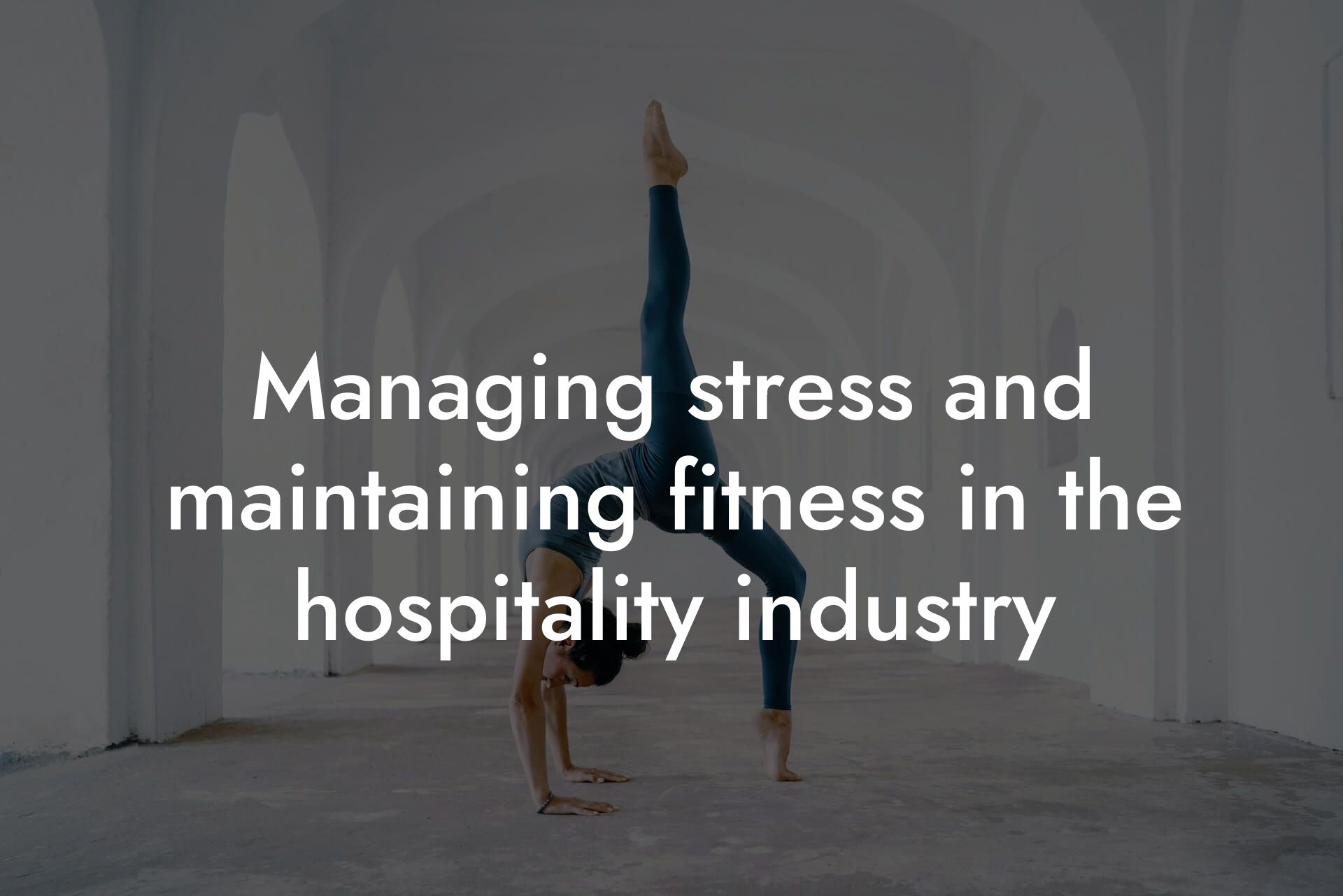The Importance of Kitchen Safety
Kitchen-related injuries are a common occurrence, especially among professionals who spend a significant amount of time in the kitchen. According to the National Safety Council, kitchen accidents account for a substantial percentage of workplace injuries, resulting in lost productivity, medical expenses, and even long-term disability. As a high-earning professional, it's essential to prioritize kitchen safety to avoid these preventable injuries. One crucial aspect of kitchen safety is physical fitness, which plays a vital role in preventing kitchen-related injuries.
Table of Contents
- The Importance of Kitchen Safety
- How Physical Fitness Reduces Injury Risk
- The Most Common Kitchen-Related Injuries
- The Impact of Physical Fitness on Injury Prevention
- Exercise and Training Programs for Kitchen Professionals
- The Role of Body Composition in Injury Prevention
- How DEXA Scans Can Help
- Frequently Asked Questions
How Physical Fitness Reduces Injury Risk
Physical fitness is often associated with aesthetics, but its benefits extend far beyond physical appearance. Regular exercise and physical activity improve overall health, increase strength, flexibility, and coordination, and enhance cognitive function. In the context of kitchen work, physical fitness can significantly reduce the risk of injury in several ways:
- Improved balance and coordination reduce the likelihood of slips, trips, and falls, which are common causes of kitchen accidents.
- Enhanced strength and endurance enable professionals to perform physically demanding tasks with ease, reducing the risk of overexertion and fatigue.
- Better flexibility and range of motion allow for more efficient movement, reducing the risk of strains and sprains.
- Improved cognitive function and reaction time enable professionals to respond quickly and effectively in emergency situations.
The Most Common Kitchen-Related Injuries
Kitchen-related injuries can be severe and debilitating, and they often result from preventable accidents. Some of the most common kitchen-related injuries include:
- Cuts and lacerations from sharp objects or broken glass
- Burns from hot surfaces, flames, or scalding liquids
- Strains and sprains from heavy lifting, bending, or twisting
- Fractures and broken bones from falls or other accidents
- Repetitive strain injuries from prolonged periods of standing, sitting, or performing repetitive tasks
The Impact of Physical Fitness on Injury Prevention
Regular exercise and physical activity can significantly reduce the risk of kitchen-related injuries. A study published in the Journal of Occupational and Environmental Medicine found that physically fit individuals were less likely to experience workplace injuries, including those related to kitchen work. Another study published in the International Journal of Industrial Ergonomics found that exercise programs specifically designed to improve strength, flexibility, and balance reduced the risk of musculoskeletal disorders among kitchen workers.
Exercise and Training Programs for Kitchen Professionals
As a high-earning professional, it's essential to incorporate exercises and training programs that target specific muscle groups and skills relevant to kitchen work. Some exercises and training programs that can help reduce the risk of kitchen-related injuries include:
- Strength training exercises for the back, shoulders, and core, such as squats, lunges, and deadlifts
- Flexibility and stretching exercises for the neck, back, and legs, such as yoga or Pilates
- Balance and coordination exercises, such as single-leg squats or balance boards
- Cardiovascular exercises, such as running or cycling, to improve endurance and reduce fatigue
- Functional training exercises that mimic kitchen tasks, such as lifting, carrying, and manipulating objects
The Role of Body Composition in Injury Prevention
Body composition, including body fat percentage and lean muscle mass, plays a crucial role in injury prevention. Excess body fat can increase the risk of injury by:
- Reducing mobility and flexibility
- Increasing the risk of chronic diseases, such as diabetes and cardiovascular disease
- Impairing cognitive function and reaction time
On the other hand, lean muscle mass can reduce the risk of injury by:
- Improving strength and endurance
- Enhancing mobility and flexibility
- Supporting bone density and reducing the risk of osteoporosis
How DEXA Scans Can Help
As a high-earning professional, it's essential to monitor your body composition and physical fitness regularly. DEXA (Dual-Energy X-ray Absorptiometry) scans provide a comprehensive assessment of body composition, including body fat percentage, lean muscle mass, and bone density. At Tano Performance Group, our DEXA scans offer a precise and accurate measurement of your body composition, enabling you to:
- Track changes in body composition over time
- Identify areas for improvement
- Develop targeted exercise and nutrition programs to optimize physical fitness and reduce the risk of injury
In conclusion, physical fitness plays a vital role in preventing kitchen-related injuries. By incorporating regular exercise and physical activity into your routine, you can reduce the risk of injury, improve overall health, and enhance your performance in the kitchen. As a high-earning professional, it's essential to prioritize kitchen safety and take proactive steps to prevent injuries. By monitoring your body composition with DEXA scans and incorporating targeted exercise and training programs, you can optimize your physical fitness and reduce the risk of kitchen-related injuries.
Frequently Asked Questions
What is the significance of physical fitness in preventing kitchen-related injuries?
Physical fitness plays a crucial role in preventing kitchen-related injuries by enhancing overall physical strength, flexibility, and coordination. When you're physically fit, you're better equipped to handle the demands of cooking and working in the kitchen, reducing your risk of injury.
What are the most common kitchen-related injuries?
The most common kitchen-related injuries include cuts, burns, slips, trips, and falls. These injuries can occur due to a variety of factors, including poor posture, inadequate training, and lack of physical fitness.
How does physical fitness reduce the risk of kitchen-related injuries?
Physical fitness reduces the risk of kitchen-related injuries by improving balance, agility, and reaction time. When you're physically fit, you're better able to react to unexpected situations, such as a hot pan falling off the stove, and avoid injuries.
What are some common kitchen tasks that require physical fitness?
Common kitchen tasks that require physical fitness include lifting heavy pots and pans, standing for long periods, and reaching for high shelves. These tasks can be challenging, especially for those who are not physically fit.
How can I improve my physical fitness for kitchen work?
You can improve your physical fitness for kitchen work by engaging in regular exercise, such as cardio, strength training, and flexibility exercises. It's also essential to incorporate functional training that mimics kitchen tasks, such as lifting and carrying heavy objects.
What are some exercises that can help improve my kitchen-related physical fitness?
Exercises that can help improve your kitchen-related physical fitness include squats, lunges, deadlifts, and shoulder presses. These exercises can help improve your strength, balance, and coordination, reducing your risk of injury in the kitchen.
How often should I exercise to improve my kitchen-related physical fitness?
Aim to exercise at least three times a week, with a focus on functional training exercises that mimic kitchen tasks. It's also essential to incorporate rest days to allow your body to recover and rebuild.
What is the role of flexibility in preventing kitchen-related injuries?
Flexibility plays a crucial role in preventing kitchen-related injuries by allowing you to move freely and easily in the kitchen. When you're flexible, you're less likely to strain or pull muscles, reducing your risk of injury.
How can I improve my flexibility for kitchen work?
You can improve your flexibility for kitchen work by incorporating stretching exercises into your daily routine. Focus on exercises that target your shoulders, back, and hips, as these areas are commonly used in kitchen tasks.
What are some common kitchen hazards that can lead to injury?
Common kitchen hazards that can lead to injury include slippery floors, hot surfaces, sharp objects, and heavy equipment. It's essential to be aware of these hazards and take steps to mitigate them.
How can I reduce the risk of slipping and falling in the kitchen?
You can reduce the risk of slipping and falling in the kitchen by wearing non-slip shoes, cleaning up spills immediately, and using non-slip mats on floors.
What should I do if I experience a kitchen-related injury?
If you experience a kitchen-related injury, stop what you're doing and seek medical attention if necessary. Apply the RICE principle – rest, ice, compression, and elevation – to reduce pain and inflammation.
How can I prevent kitchen-related injuries in the long term?
You can prevent kitchen-related injuries in the long term by making physical fitness a priority, staying aware of kitchen hazards, and taking regular breaks to rest and recover.
What are some common mistakes that can lead to kitchen-related injuries?
Common mistakes that can lead to kitchen-related injuries include rushing, taking shortcuts, and failing to follow safety protocols. It's essential to stay focused and aware in the kitchen to reduce your risk of injury.
How can I stay motivated to prioritize physical fitness for kitchen work?
You can stay motivated to prioritize physical fitness for kitchen work by setting realistic goals, tracking your progress, and celebrating your successes. It's also essential to find exercises that you enjoy and that fit into your lifestyle.
What is the role of nutrition in preventing kitchen-related injuries?
Nutrition plays a crucial role in preventing kitchen-related injuries by providing your body with the necessary fuel to perform at its best. A balanced diet that includes plenty of protein, complex carbohydrates, and healthy fats can help improve your physical fitness and reduce your risk of injury.
How can I incorporate nutrition into my kitchen-related physical fitness routine?
You can incorporate nutrition into your kitchen-related physical fitness routine by fueling your body with a balanced diet, staying hydrated, and avoiding sugary and processed foods.
What are some common myths about physical fitness and kitchen-related injuries?
Common myths about physical fitness and kitchen-related injuries include the idea that physical fitness is only for athletes or that it's too late to start exercising. These myths are false, and anyone can benefit from prioritizing physical fitness to reduce their risk of kitchen-related injuries.
How can I get started with a physical fitness routine for kitchen work?
You can get started with a physical fitness routine for kitchen work by consulting with a healthcare professional or fitness expert, setting realistic goals, and starting with small, achievable steps. It's also essential to find exercises that you enjoy and that fit into your lifestyle.
What are some resources available to help me improve my physical fitness for kitchen work?
Resources available to help you improve your physical fitness for kitchen work include fitness classes, personal training sessions, and online resources such as videos and tutorials. You can also consult with a healthcare professional or fitness expert for personalized guidance.
How can I track my progress and stay motivated?
You can track your progress and stay motivated by setting realistic goals, tracking your workouts, and celebrating your successes. It's also essential to find a workout buddy or accountability partner to help you stay on track.
What are some common challenges that people face when trying to improve their physical fitness for kitchen work?
Common challenges that people face when trying to improve their physical fitness for kitchen work include lack of time, lack of motivation, and lack of knowledge about exercises and nutrition. It's essential to overcome these challenges by finding creative solutions and seeking support from healthcare professionals or fitness experts.
How can I overcome obstacles and stay committed to my physical fitness routine?
You can overcome obstacles and stay committed to your physical fitness routine by finding creative solutions, seeking support from healthcare professionals or fitness experts, and celebrating your successes. It's also essential to stay focused on your goals and remind yourself why you started in the first place.
Here are some related articles you might love...
- The impact of physical health on creativity in culinary arts
- Managing stress and maintaining fitness in the hospitality industry
- How chefs can maintain fitness despite long hours in the kitchen
- Quick workouts for chefs and hospitality staff
- The connection between physical fitness and guest satisfaction
- Balancing food tasting with personal fitness goals
- The importance of DEXA scans for culinary and hospitality professionals
- Nutrition tips for maintaining energy during long service hours
- How hospitality professionals can stay active during busy shifts
Zak Faulkner
Zak Faulkner is a leading authority in the realm of physical health and body composition analysis, with over 15 years of experience helping professionals optimise their fitness and well-being. As one the experts behind Tano Performance Group, Zak has dedicated his career to providing in-depth, science-backed insights that empower clients to elevate their physical performance and overall health.
With extensive knowledge of DEXA technology, Zak specializes in delivering comprehensive body assessments that offer precise data on body fat, muscle mass, bone density, and overall physique. His expertise enables individuals to make informed decisions and achieve their fitness goals with accuracy and confidence. Zak’s approach is rooted in a deep understanding of human physiology, combined with a passion for helping clients unlock their full potential through personalised strategies.
Over the years, Zak has earned a reputation for his commitment to excellence, precision, and client-focused service. His guidance is trusted by top professionals who demand the best when it comes to their health. Whether advising on fitness programs, nutritional strategies, or long-term wellness plans, Zak Faulkner’s insights are a valuable resource for anyone serious about taking their health and fitness to the next level.
At Tano Performance Group, Zak continues to lead our Content Team revolutionising how professionals approach their physical health, offering unparalleled expertise that drives real results.




